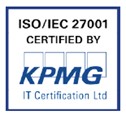A Look Into Emergency Procurement and Beyond
9 April 2020
Author: Outi Jousi (Counsel, Head of Public Procurement in Helsinki)
In these turbulent times, public procurement is becoming increasingly important for the welfare of our countries. As the world economy is taking a hit due to the COVID-19 pandemic, public entities will still continue to need supplies and services. This is a significant opportunity for the private sector, and we estimate public tendering competitions to become even more important for the private sector companies. We have seen local authorities recommend that contracting authorities expedite their tendering competitions instead of prolonging them. In addition, faster payment schemes have been suggested.
The EU has launched joint public procurements for the Member States regarding medical supplies. However, individual national authorities need to ensure the availability of such supplies as well. To overcome the immediate threat and to enhance “swift and smart solutions”, the European Commission published guidance on public procurement on 1 April 2020. The guidance discusses possibilities to shorten deadlines, resort to “direct awards” without tendering competitions, and look for new solutions from the market.
Time limits associated with standard tendering competitions, as set out in the Directives on Public Procurement, are far too long in many cases. Even accelerated procedures may take too long and therefore put lives at risk. However, we must point out that these unusual circumstances cannot be used as grounds for all types of direct awards, and a case-by-case assessment is necessary. Time will tell how many of these contract award decisions will be challenged in courts. Unlike in many other places, here in the Nordic countries, such appeals are very common. Therefore, direct awards should only be used when the events are unforeseen, caused by extreme urgency, and meet immediate needs. Medical equipment in a crisis situation may well meet the criteria for such direct award, but the picture is a bit more unclear when it comes to, for instance, new IT systems, even if they are associated with general medical needs.
The Commission stresses the importance of dialogue between the public sector and suppliers. This is also something worth remembering after the crisis; we have found that the best public procurements are the outcomes of careful planning, market surveys, and contract drafting. Sustainable procurement, coupled with money-saving agile innovations, is something that will likely gain more foothold when the immediate emergency is over.






